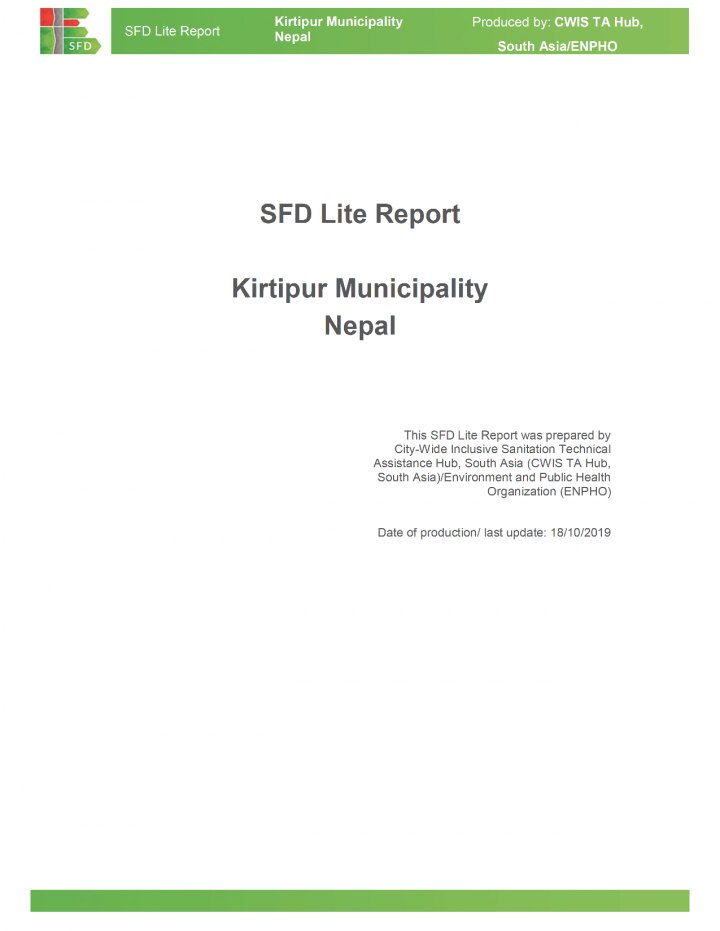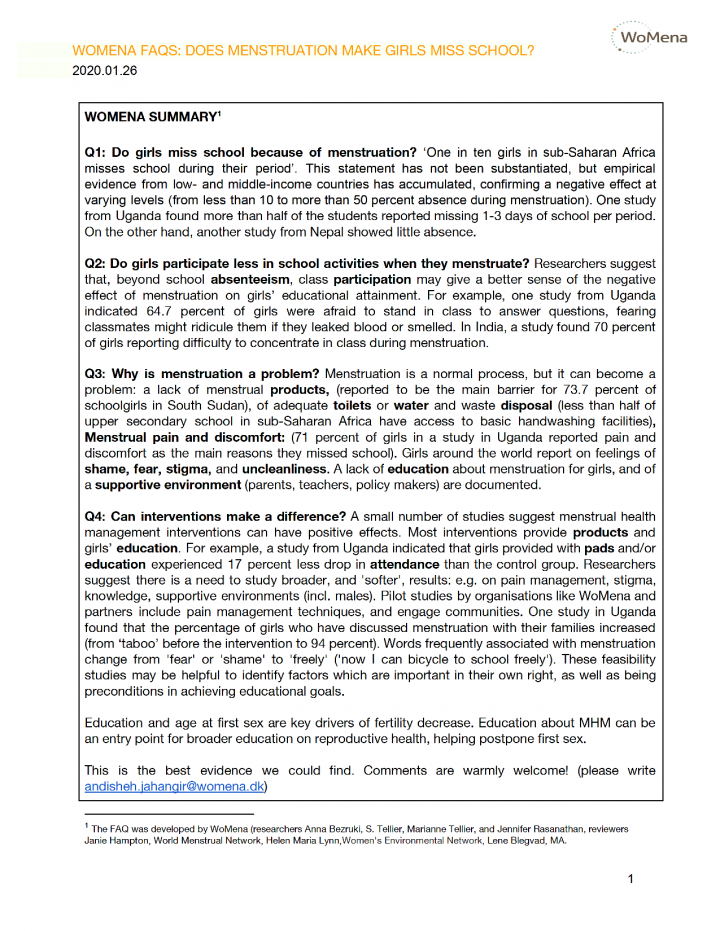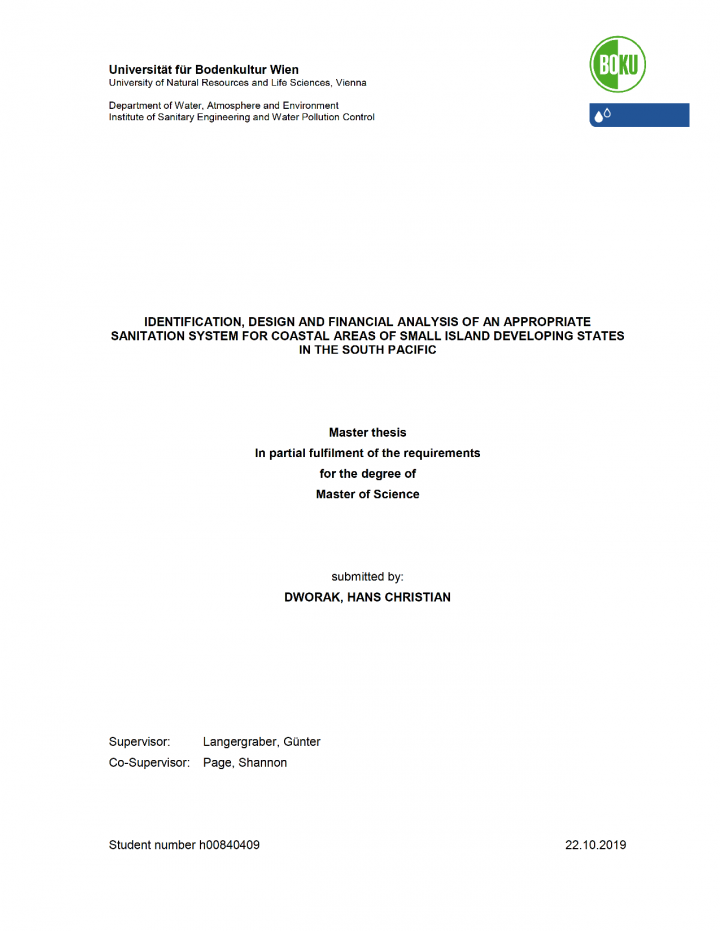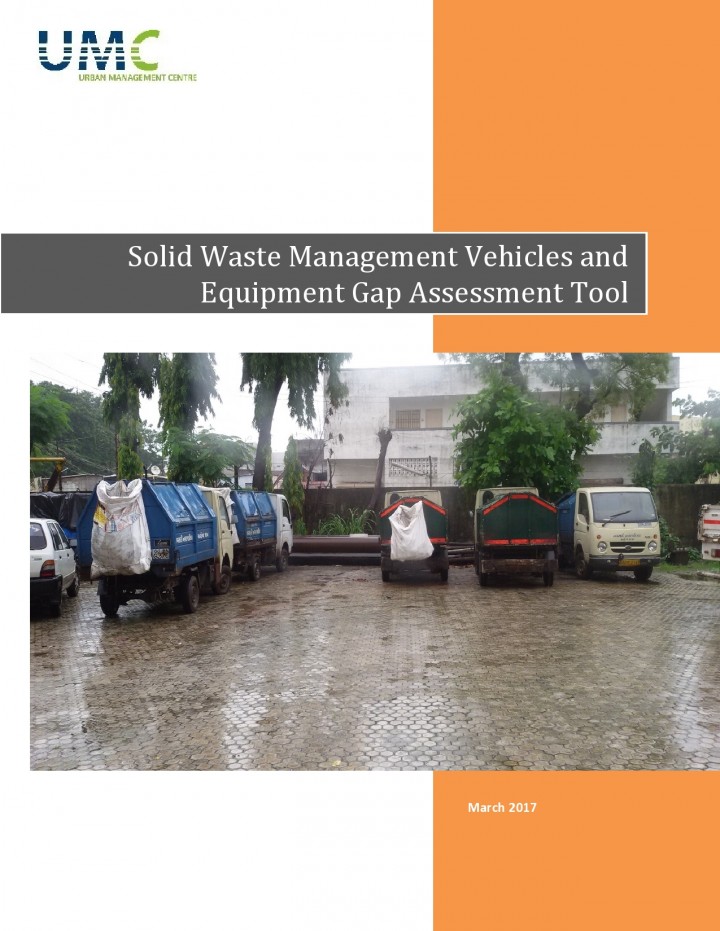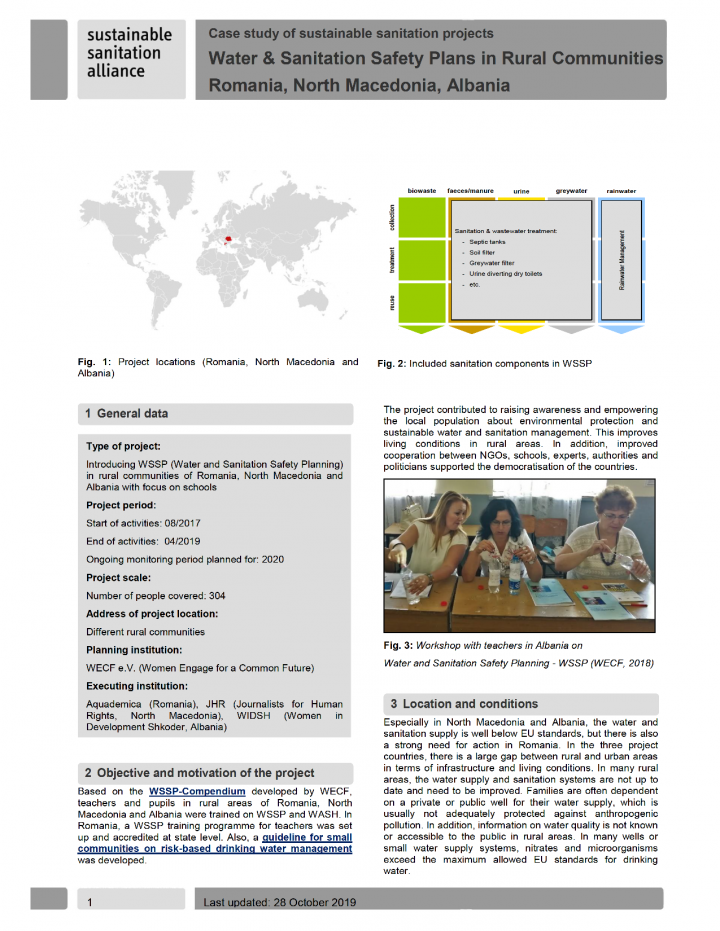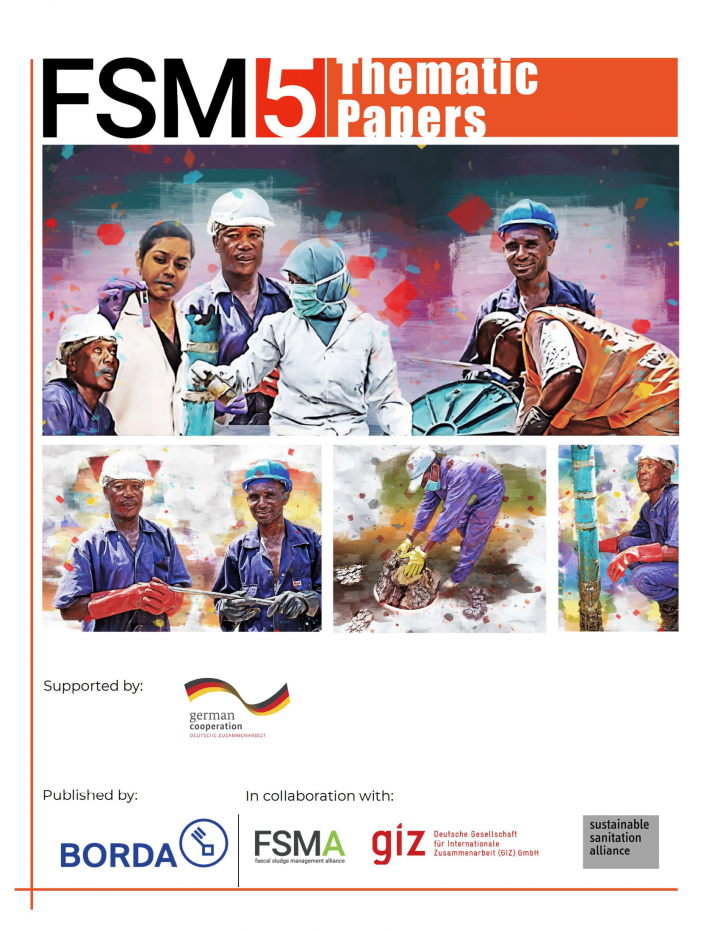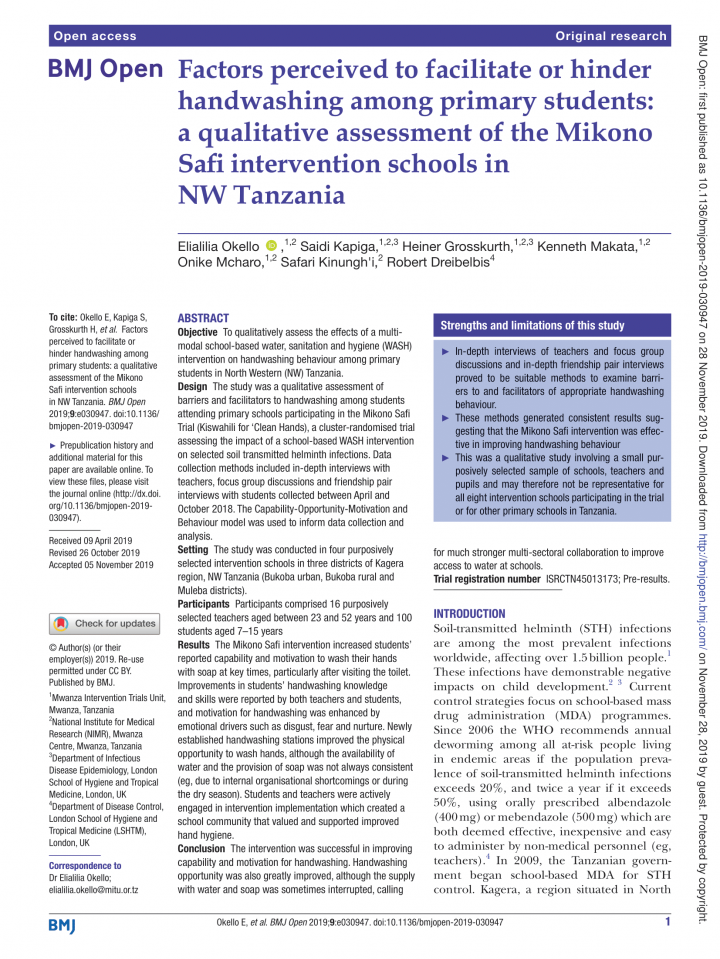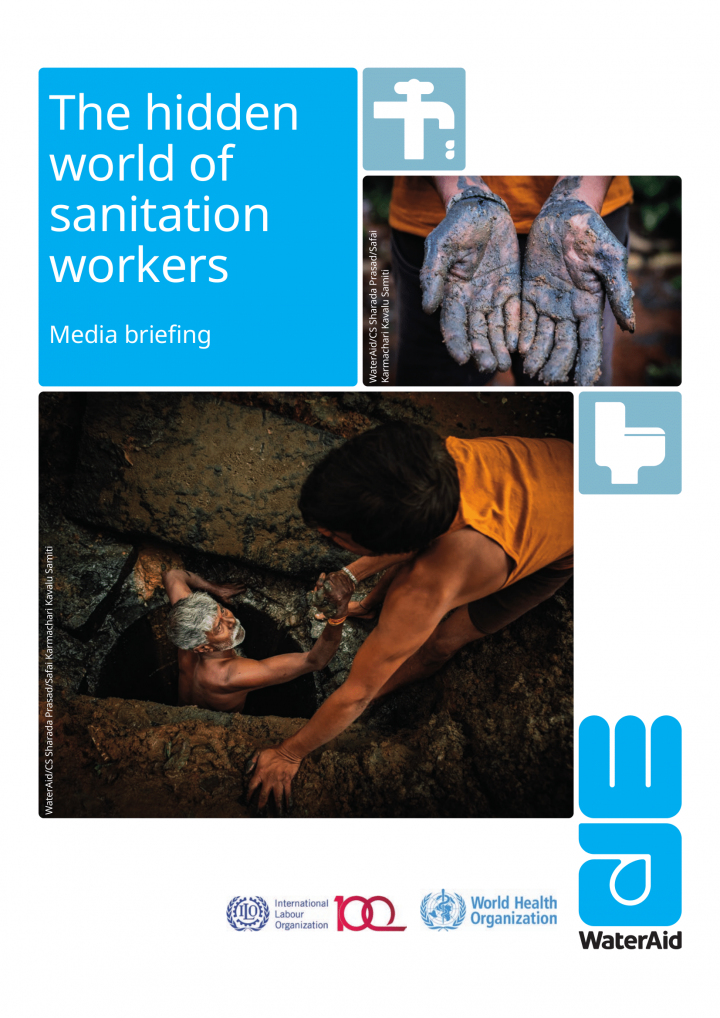Searching for information on Sanitation Workers?
The Sanitation Workers Knowledge + Learning Hub is the best source for all current news, trends, articles and updates on sanitation workers rights around the world.
Kirtipur is one of the historical cities, which was declared as municipality among 58 municipalities under the Municipal Act in 1996 (2053 B. S., in Nepali calendar) within the Kathmandu valley. The total population of Kirtipur Municipality is 65,602 residing in 19,941 households. People of Kirtipur Municipality rely on either municipal water supply or from other sources. The main sources of …
The Sustainable Services Initiative (SSI) of Welthungerhilfe (WHH) seeks to strengthen the sustainability of its WASH programming through adopting systems strengthening approaches and seeks to add value to wider sector efforts in systems strengthening, through participation in movements such as Agenda for Change (A4C). The SSI is primarily financed by Viva con Agua and WHH with technical support …
This factsheet is outlining current menstrual health and hygiene developments in Nepal. It also highlights the problems many girls and women encounter in accessing sanitary products.
In order to address this the production of sanitary pads by local women's cooperatives using sanitary pad machines, is supported by German Development Cooperation. These processes of facilitating the procurement …
The debate on subsidies has recently resurfaced in the context of the ambitious Sustainable Development Goal to achieve universal access to safely managed sanitation and the very significant funding gap to achieve this. The water and sanitation sector has always been highly subsidized, yet those subsidies mostly flow into support for existing customers rather than extension of services to the …
Q1: Do girls miss school because of menstruation? ‘One in ten girls in sub-Saharan Africa misses school during their period’. This truism has not been substantiated, but empirical evidence from low- and middle-income countries has accumulated, confirming a negative effect at varying levels (from less than 10 to more than 50 percent absence during menstruation). One study from Uganda found …
Worldwide over the last years, a shift has taken place in the acceptance of faecal sludge management (FSM). It is now considered by many to be a viable solution alongside sewer-based systems in achieving citywide inclusive sanitation, and faecal sludge treatment plants (FSTPs) are starting to be constructed throughout Asia and Africa. For example, more than 40 FSTPs started operation in India and …
Rural coastal areas of Small Island Developing States in the South Pacific are often characterized by high groundwater tables, flood proneness and scarce freshwater resources. Thin and permeable soil layers featuring a limited unsaturated zone make the groundwater lens below these islands highly vulnerable to microbiological and chemical contamination. The prevalent sanitation systems (i.e. …
This report presents estimates of the WASH-attributable burden of 12 major diseases, adverse health outcomes and injuries and evidence for links between WASH and another 14 conditions that have not yet been quantified because of data limitations. Not all the health effects of inadequate WASH on the diseases assessed could be quantified, such as the wider community risks of unsafe disposal or use …
The tool aims to help city managers and decision makers working with Solid Waste Management (SWM) departments. The tool helps in identifying gaps related to vehicles and equipments in use and estimated future needs of the department. It further calculates the cost and estimates operations and maintenance expenditure for the same.
Based on the WSSP-Compendium developed by WECF, teachers and pupils in rural areas of Romania, North Macedonia and Albania were trained on WSSP and WASH. In Romania, a WSSP training programme for teachers was set up and accredited at state level. Also, a guideline for small communities on risk-based drinking water management was developed. The project contributed to raising awareness and …
Building on the success of the first four International FSM Conferences in Chennai (2017), Hanoi (2015) and in Durban (2011& 2012), the FSM5 conference brought together professionals working in the sector, including utilities, service providers, cities, governments, academics, scientists, consultants, donors and industries, to support the global initiative of disseminating sustainable solutions …
Cities must ensure universal access to safe, reliable and affordable sanitation so that all urban residents can lead productive, healthy and thriving lives. Globally, the number of urban residents who lack safely managed sanitation has increased from 1.9 billion in 2000 to 2.3 billion in 2015, costing $223 billion a year in health costs and lost productivity and wages. When households cannot …
Bheemdatt municipality is located in Kanchanpur District of Sudur Paschim Pradesh, Nepal. The municipality covers an area of 171.63 square kilometres. It is home to 62,050 people as per census 2011. The municipality, which has been declared Open Defecation Free Zone on November 2017, is divided into 19 wards.
The municipality has a stormwater drain in core urban areas but lacks municipal …
The Water Supply and Sanitation Collaborative Council (WSSCC) established the Global Sanitation Fund (GSF) in 2008. Since then, it has supported sanitation at scale through collective behaviour change in 13 countries in Africa and Asia. In 2016, it initiated a learning process to identify and analyse key factors impacting on equality and non-discrimination (EQND) within the 13 GSF-supported …
In 2018, the WASH sector was surprised by three new high-quality studies (WASH Benefits, Kenya and Bangladesh and SHINE, Zimbabwe) that showed little or no impact of selected WASH interventions on reducing childhood diarrhoea and stunting. Some practitioners, researchers and funders have reacted by questioning the value of investing in WASH compared to other public health interventions and how …
Children in rural Malawi live in environments heavily contaminated with pathogens that cause diarrhoea. Food hygiene and animal stool management are neglected areas of hygiene in research and programming. Improving food hygiene through behaviour change can significantly reduce diarrhoeal disease and should be integrated into programmes on water, sanitation and hygiene (WASH) and nutrition. …
The study used qualitative methods to assess the effects of a multi-modal school-based water, sanitation and hygiene (WASH) intervention on handwashing behaviour among primary students in North Western (NW) Tanzania. Barriers and facilitators to handwashing were explored in the students who participated in the Mikono Safi Trial (Kiswahili for ‘Clean Hands). The intervention increased students' …
The black soldier fly (BSF) can cope with a wide range of environmental conditions and the adult fly is not a vector of
disease. BSF larvae can consume different organic materials, including various organic wastes generated in large volumes within urban areas. By doing so, they reduce waste volume, grow into a protein-rich biomass and leave behind a nutrientrich residue. The harvested larvae can …
In 2013, BMGF/DFID initiated a partnership to promote private sector participation in nonnetworked sanitation and improve capabilities of sanitation service authorities to govern these partnerships. Targeted cities were expected to have a clear mandate to provide urban services for all, including for the non-networked poor; and interest to develop and test models to engage the private sector in a …
Every year, the human race produces over 350 million tonnes of poo – that’s enough to fill 140,000 Olympic swimming pools! Unless that human waste is properly dealt with, every single gram will pose a significant health risk to us and our planet.
Ensuring that our contact with human waste ends when we leave the toilet is one of the most important jobs in society, and yet around the world …
Coral reefs are in decline worldwide, and land-derived sources of pollution, including sewage, are a major force driving that deterioration. This review presents evidence that sewage discharge occurs in waters surrounding at
least 104 of 112 reef geographies. Studies often refer to sewage as a single stressor. However, we show that it is
more accurately characterized as a multiple stressor.Many …
Coral reefs have experienced a global decline due to overfishing, pollution, and warming oceans that are becoming increasingly acidic. To help halt and reverse this decline, interventions should be aimed at those threats reef experts and managers identify as most severe. The survey included responses from 170 managers, representing organizations from 50 countries and territories, and found that …
The health of both coral reefs and people are imperiled by a local threat that is widespread across the globe—sewage and the typical components it carries (e.g., nutrients, sediments, heavy metals, endocrine disruptors, pathogens, and pharmaceuticals). Despite this common threat, those concerned with human health and those concerned with coral reef health have rarely joined forces. To …
There is a big shortfall between the amount of food we produce today and the amount needed to feed everyone in 2050. There will be nearly 10 billion people on Earth by 2050—about 3 billion more mouths to feed than there were in 2010. As incomes rise, people will increasingly consume more resource-intensive, animalbased foods. At the same time, we urgently need to cut greenhouse gas (GHG) …
The OHI is considered a composite indicator because it combines many indicators into a comprehensive framework describing ocean health. This is in contrast to focusing on individual indicators, such as phosphate levels, sedimentation, biodiversity, etc. Individual indicators are important, but they provide limited information when it comes to evaluating how well an overall ecosystem is …

